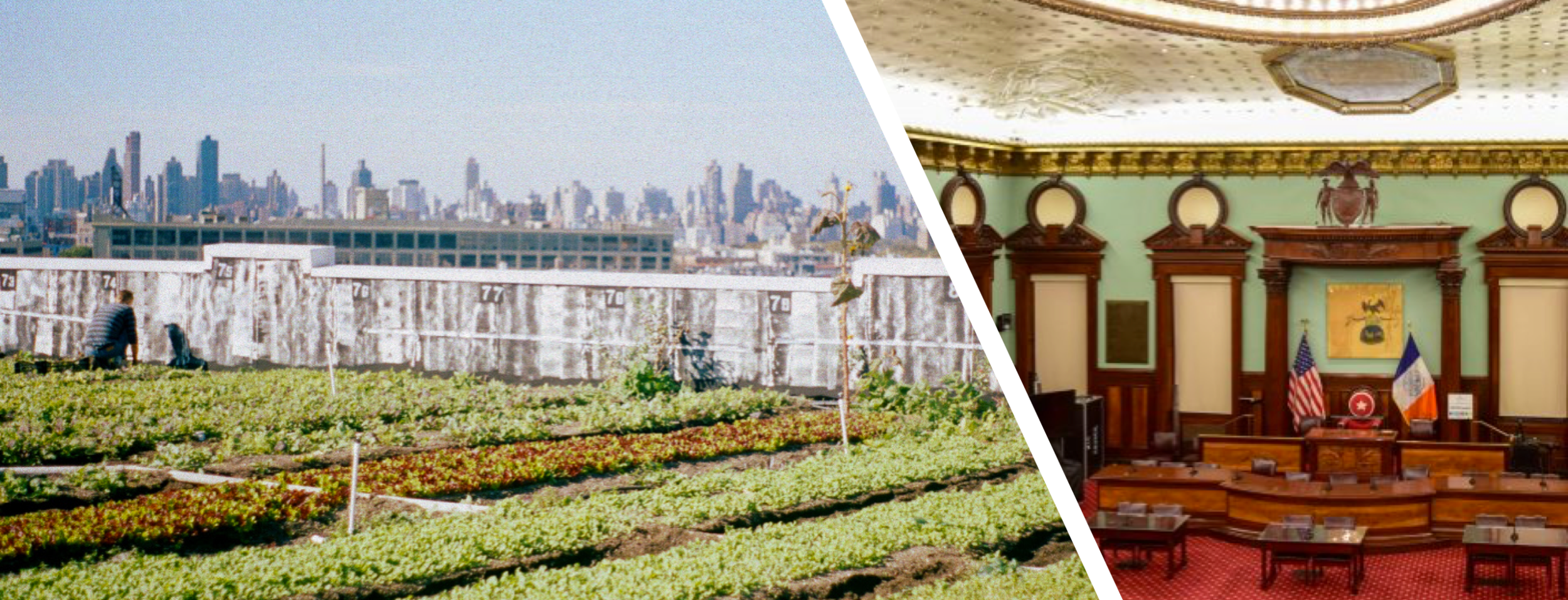New York City is an epicenter for urban agriculture. With the largest system in the country, it includes a vast (and perhaps unknown) number of community gardens, greenhouses, and rooftop farms. Despite this vital urban infrastructure, the city still does not have a comprehensive urban agriculture plan. New York City lags behind other US cities that have integrated urban agriculture in their plans and policies, such as Boston, Chicago, and Los Angeles.
On June 11th, the New York City Council held a hearing on Int. No. 1058, a bill introduced by City Council Member Rafael Espinal Jr. at the request of Brooklyn Borough President Adams that would organize, integrate, and expand urban agriculture in New York City for the first time. The bill is co-signed by 46 Council Members.
Int. No. 1058 requires the New York City Department of City Planning to prepare a comprehensive urban agriculture plan. The objectives include conservation, resiliency, youth development, job creation, and greater access to healthy foods in low income communities. Council Member Espinal Jr. stressed that “for too long, urban farmers have had their growth stymied by unclear regulations and zoning… when we support urban farms and community gardens, we are creating more access to affordable and healthy food. And we’re creating more new green jobs in local communities.” Alex Sommer, Deputy Director of the Brooklyn Borough Office of the New York City Department of Planning, expressed his support for the bill and spoke about the importance of urban agriculture.
The CUNY Urban Food Policy Institute’s testimony, which I delivered at the hearing, was authored by Dr. Nevin Cohen, Research Director at the Institute whose work extensively explores the policy and planning dimensions of urban agriculture in New York City. The testimony urged the Department of City Planning to consider several questions in the planning process: How much land should be allocated to the activity? Are existing resources such as GreenThumb adequate as urban agriculture expands? How can urban farms use resources like water or soil sustainably and economically? And, how can city plans integrate urban farms and gardens in climate resilience and social equity planning?”
A number of organizations testified in support of the legislation. Wylie Goodman, an urban planner, shared that while commercial agriculture is not constrained by zoning, “financial, legal and land use obstacles reduce the degree to which entrepreneurs can … consider New York a viable location to build their businesses.” Aziz Dehkan, the Executive Director of the NYC Community Garden Coalition, emphasized that gardens and farms “still need a lot of protection. We need permanence of community gardens. We can’t let the wedge of affordable housing and community gardens continue in this city. They are compatible.”
The bill still needs to be voted out of Committee before the full City Council will have an opportunity to enact it. Supportive testimony by the Department of City Planning and the large numbers of city council sponsors suggest that it may become law.
